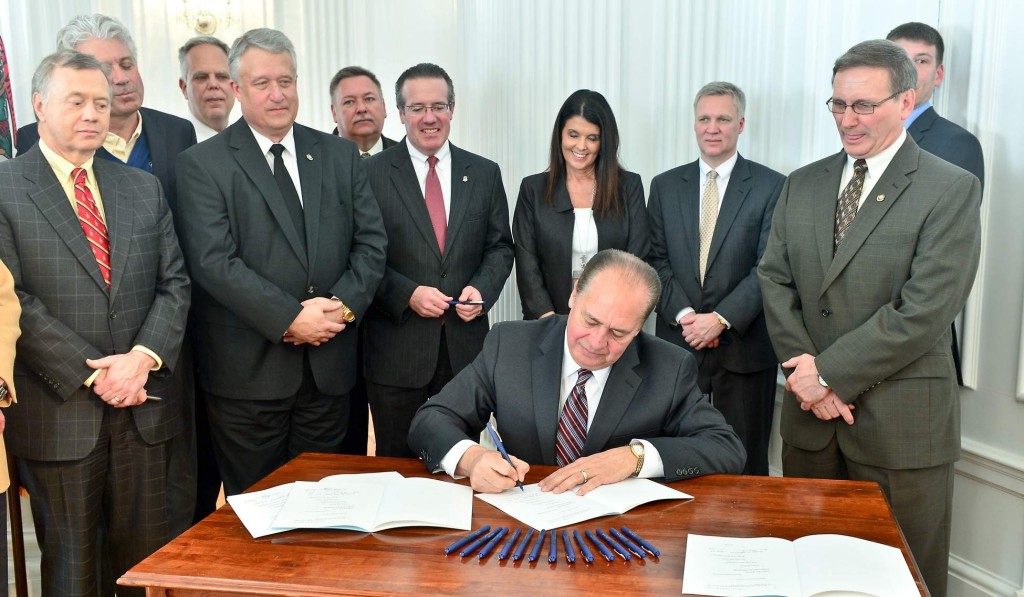The photo above is one that brings me great joy. In January of 2011, I returned to my home state of West Virginia, which has the highest opioid overdose death rate in the U.S. Two friends who are fellow health professionals - Senator Dan Foster and House Delegate Don Perdue - had asked if I could suggest legislation that would respond to the epidemic of addiction that was destroying the well-being of the state. I testified in the Senate and the House and also briefed Governor Tomblin. One of my recommendations was to expand access to the overdose rescue drug naloxone. That’s what the Governor signed into law yesterday.
The signing of the bill into law, after variants of it died in four consecutive sessions, is a credit to Governor Tomblin and to dedicated advocates in the State Legislature (Most particularly, the physician/Senator to the Governor’s left, Ron Stollings, who championed this bill yet again this year). It’s also a credit to people around the state, including county officials, police officers and doctors who contacted the legislature to express support. Congratulations as well to West Virginia recovery advocate Sean Hughes, who went public with his compelling story of how his life was once saved by naloxone. All of them make me even prouder of my state than I was already, if that is possible.
About half of the states have now have passed laws to expand access to naloxone, and the future of expansion looks brighter than ever. When I wrote the naloxone access expansion section of President Obama’s first national drug control strategy in 2009 (reversing prior US policy), most of the people I had to win over didn’t know what I was talking about. Today the medication and its possibilities have a much higher profile and level of popular understanding, and with that has come substantially increased interest in access expansion. Expanding access to naloxone can’t stop our overdose epidemic by itself, but it can certainly save lives in every state that is currently considering following West Virginia’s example.
